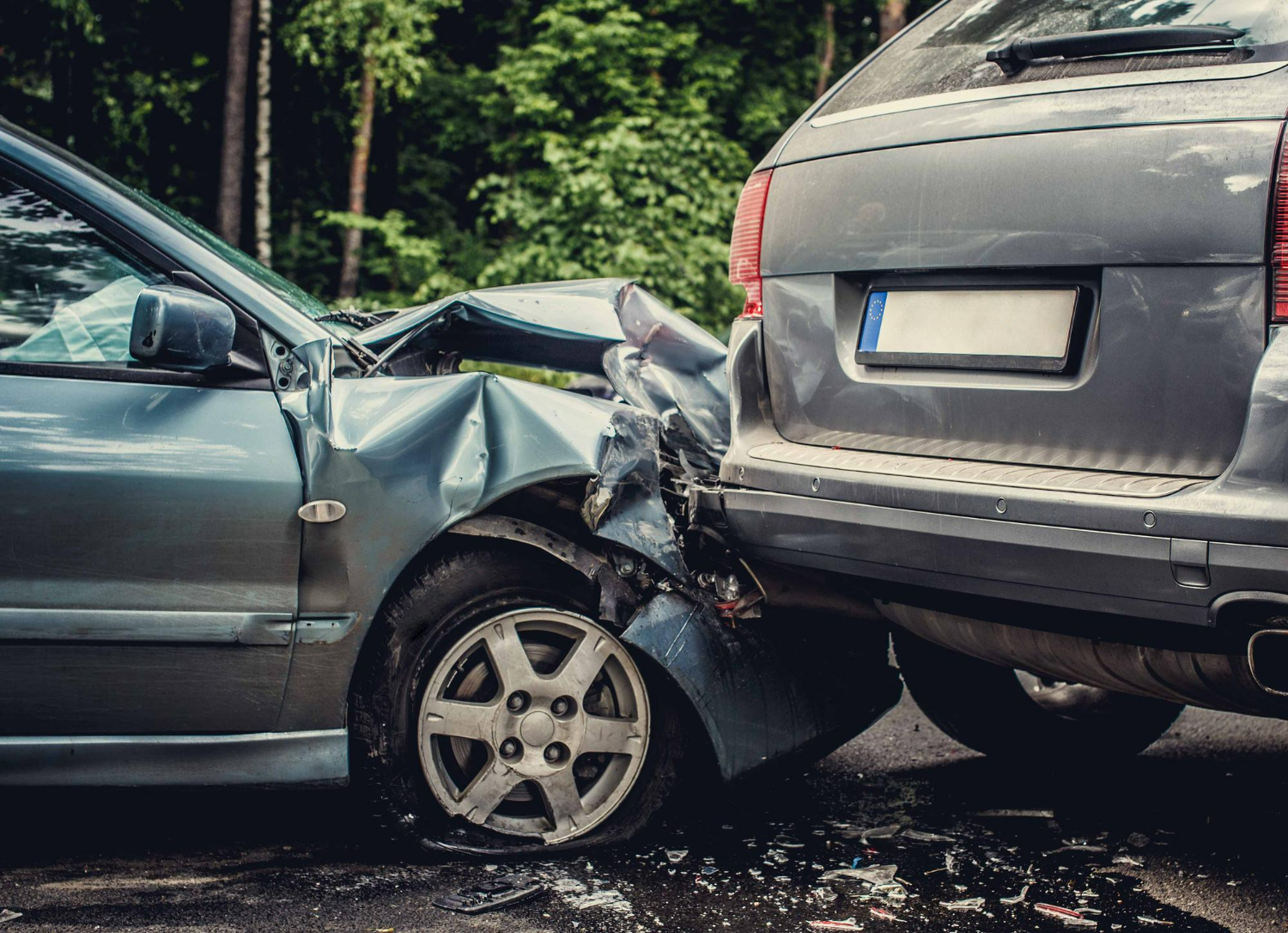

When your car is declared “totaled,” it can be confusing and overwhelming to understand what that really means.
A totaled vehicle is not just a wrecked car—it’s a specific term used by insurance companies when the cost of repairing the vehicle exceeds its value.
This situation can leave you with many questions: What happens next? How is the car’s value determined? What are your options?
In this guide, we’ll break down everything you need to know about a totaled vehicle so you can make informed decisions if you ever find yourself in this situation.
Totaled Vehicle Figures in the US
| Factoid | Statistic | Source |
|---|---|---|
| Vehicles depreciate about 20% in the first year. | 20% | Kelley Blue Book |
| 75% repair cost to car value is a common threshold for totaling. | 75% | Various State Laws |
| Average payout for a totaled vehicle claim is around $9,000. | $9,000 | Insurance Information Institute |
| Over 6 million car accidents occur annually in the U.S. | 6 million | National Safety Council |
| 42% of totaled cars result from collisions. | 42% | Insurance Institute for Highway Safety |
Understanding What It Means for a Vehicle to Be Totaled
A vehicle is typically considered totaled when the cost of repairs exceeds a certain percentage of its market value—usually around 70% to 75%, but this can vary depending on the state.
For example, in some states, the threshold might be as low as 50%, meaning the car could be declared a total loss even with relatively minor damage.
How Insurance Companies Determine If a Car Is Totaled
Insurance companies use a complex formula to decide if a car is totaled.
They start by estimating the cost of repairs and then compare it to the vehicle’s actual cash value.
For example, if a car is worth $10,000 and the repair costs are estimated at $8,000, it would likely be considered a total loss because the repairs exceed 70% of the car’s value.
Factors such as pre-existing damage, previous accidents, and the condition of the vehicle before the crash are also taken into account.
Factors That Influence the Decision
When a car is declared a total loss, it’s not just about how damaged it looks.
Several factors go into the decision to total a vehicle, and understanding these can help you make sense of why your car was deemed beyond repair.
The insurance company’s goal is to determine whether fixing the car makes financial sense compared to its current value.
- Cost of Repairs
- Hidden Damages
- Vehicle’s Age
- Mileage
- Pre-Existing Damage
- Market Value
- Depreciation
- State Regulations
- Insurance Policy Terms
- Salvage Value
The decision to total a car involves more than just assessing the visible damage. Insurance companies must weigh the cost of repairs against the vehicle’s current value, considering all these factors.
Total Loss Threshold and Its Variations by State
The total loss threshold is the point at which the cost of repairs is high enough for the vehicle to be declared totaled.
This threshold varies by state. In some states like Texas, the threshold is 100%, meaning the repair costs must equal or exceed the car’s value. In others, like Florida, the threshold is 80%.
The Role of Vehicle Depreciation in Determining a Total Loss
Depreciation is a major factor when it comes to determining if a car is a total loss.
As soon as a new car is driven off the lot, it starts to lose value—typically 20% in the first year!
For instance, a car that was purchased for $30,000 may only be worth $24,000 after a year, even if it’s in great condition.
This depreciation is factored into the actual cash value of the vehicle at the time of the accident, which can make it easier for the insurance company to declare it a total loss if repairs are costly.
Situations Where a Car Might Be Mistakenly Considered Totaled
Sometimes a car is declared totaled due to an overestimation of repair costs or underestimation of the car’s value.
For example, if the appraiser doesn’t notice aftermarket upgrades like a new sound system or custom rims, the value might be calculated lower than it should be.
In such cases, you can provide documentation to show the true value of your car and potentially challenge the total loss decision.
How to Dispute a Totaled Car Claim with the Insurer
If you believe your car has been wrongfully declared a total loss, you can dispute the claim by getting a second opinion from an independent appraiser or providing evidence of your car’s value, such as recent maintenance records or receipts for upgrades.
The insurance company may reconsider their decision if you can prove that the car’s actual cash value is higher than initially estimated.
If needed, Goldenzweig Law can assist you in disputing the claim and help ensure you receive a fair settlement.
Steps to Take Immediately After Your Car Is Totaled
Dealing with a totaled vehicle can be a stressful experience, but knowing what steps to take can make the process smoother.
It’s essential to handle things correctly right from the start to protect yourself legally and financially.
Here’s what you need to know about the immediate actions to take after your car has been declared a total loss.
Safety Measures to Take at the Accident Scene
The first thing to do is to ensure everyone’s safety.
If you’re able, move your vehicle to a safe location away from traffic to prevent further accidents.
Turn on your hazard lights to alert other drivers. If anyone is injured, call 911 immediately.
Even if there are no visible injuries, it’s a good idea to seek medical attention, as some injuries might not be apparent right away.
Collecting Evidence
Gathering evidence is crucial when dealing with a totaled vehicle.
Take photos of the damage from multiple angles, including the interior if there are any noticeable issues.
If there are witnesses, ask for their contact information and a brief statement about what they saw.
A police report is also vital, as it provides an official record of the accident.
These documents can be invaluable during the insurance claims process, especially if there is any dispute about the accident’s details.
Contacting Your Insurance Company
As soon as you’re safe and have gathered preliminary evidence, call your insurance company to report the accident.
Provide them with all the necessary details, such as the location of the accident, time, and any other vehicles involved.
They will guide you on the next steps, which typically include assigning an adjuster to evaluate the damage and determine whether the car is a total loss.
Being prompt with this step helps to speed up the claims process, which is particularly important if you rely on your car for daily transportation.
Documenting the Damages and Obtaining Repair Estimates
Although the insurance company will send an adjuster to assess the damage, it’s a good idea to get a repair estimate from a trusted mechanic or body shop.
This helps you understand the extent of the damage and provides a reference point if you need to dispute the insurance company’s valuation.
Keep all documentation, including the estimate, photos, and any notes you’ve taken, organized in one place.
What Not to Say or Do During the Claim Process
During the claims process, be careful with your words.
Avoid admitting fault or speculating about the cause of the accident.
Stick to the facts as you know them and let the insurance company investigate.
If you’re unsure about what to say, consider consulting with a legal professional like those at Goldenzweig Law to ensure you don’t inadvertently harm your case.
Determining Liability if Another Party Is Involved
If another driver was involved in the accident, determining liability becomes a key factor. The insurance companies will investigate to establish who was at fault.
This can affect how much you receive in compensation.
Be sure to provide your insurer with all relevant information, including the other driver’s insurance details and any statements from witnesses or the police report.
Liability disputes can be complex and might require legal assistance to resolve.
Getting a Second Opinion on the Damage Assessment
If you feel the insurance company’s assessment is too low, you have the right to seek a second opinion from an independent appraiser.
This can help you verify the actual cash value and repair costs of your vehicle.
Sometimes, insurance companies may overlook or underestimate certain damages, so having another perspective can be beneficial.
Keep all documentation from this appraisal as evidence, should you need to contest the insurer’s decision.
Understanding the Insurance Adjuster’s Role
The insurance adjuster is responsible for evaluating the damage to your vehicle and determining the settlement amount.
They work for the insurance company, so their goal is to minimize the payout while still meeting your policy’s terms.
It’s essential to provide them with all the evidence you’ve gathered to ensure they have an accurate picture of the damage.
If you disagree with their findings, you can appeal the decision or get help from a legal professional.
Preparing for the Claims Process
Getting ready for the insurance claims process after your vehicle has been totaled can feel overwhelming. However, being prepared can make a big difference in how smoothly things go.
The key is to gather and organize all necessary documents and information before the process begins.
This preparation helps ensure that you have everything you need to support your claim and that you’re ready to respond quickly to any requests from the insurance company.
- Gather Your Insurance Policy Information
- Obtain a Copy of the Police Report
- Document the Damage
- Get a Repair Estimate
- Collect Medical Records
- Keep a Record of All Correspondence
- Review Your Policy’s Total Loss Terms
- Prepare Financial Documents
- Know Your Rental Car Coverage
- Consult a Legal Professional if Needed
Being well-prepared for the claims process can save you time and reduce stress.
By following these steps, you’ll be in a better position to handle any issues that arise and ensure that your claim is processed as efficiently as possible.
Protecting Your Rights During the Claim Evaluation
The insurance company’s evaluation isn’t always final.
If you feel the settlement offer doesn’t reflect the true value of your car or if there are other issues, you have the right to contest it. This is where legal assistance can be crucial.
A law firm like Goldenzweig Law can help protect your rights and ensure you receive fair compensation.
They can guide you through the appeals process and help resolve any disputes with your insurer.
Need Help After a Totaled Vehicle?
Dealing with a totaled vehicle can be confusing and overwhelming, especially when you’re trying to handle the insurance claims process.
If you’re unsure about your options or feel like you’re not getting a fair settlement, Goldenzweig Law can help.
Contact our experienced car accident lawyer today at 713-903-3988 to get the support you need and ensure your rights are protected during this challenging time.
Navigation
Related Posts


What is a Non Dot Recordable Accident?
Continue Reading

